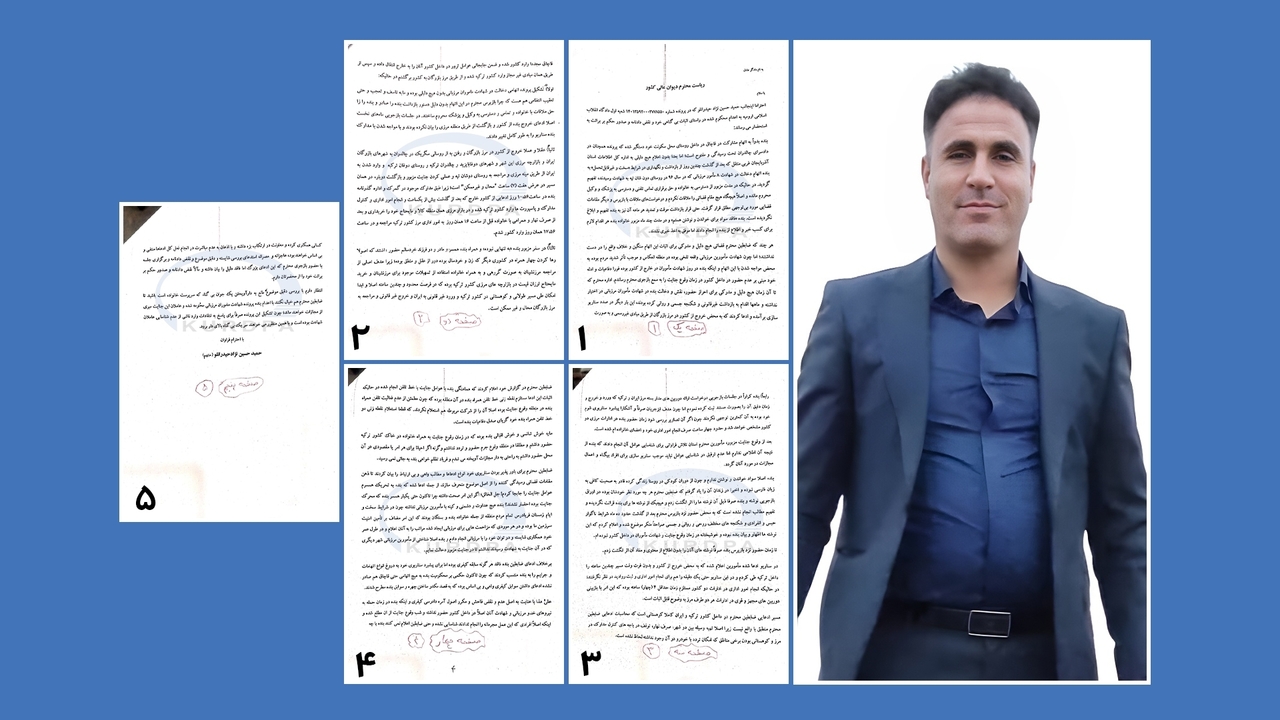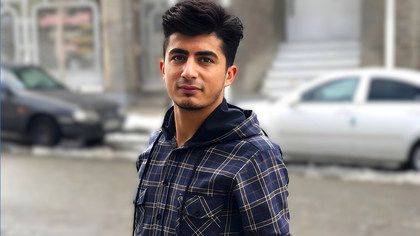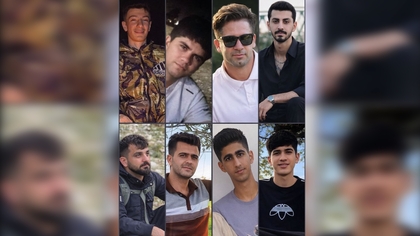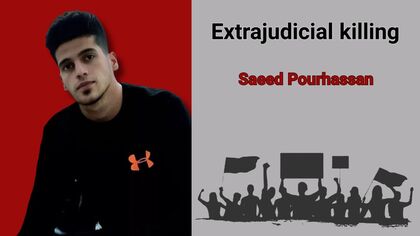Supreme Court Ignored Hamid Hosseinnezhad’s Formal Appeal Against His Death Sentence: Legal Defenses, Contradictions with Coerced Confessions, and Security Fabrication

Hamid Hosseinnezhad Heydaranlou, a Kurdish political prisoner sentenced to death, submitted a formal legal appeal to the Supreme Court of Iran, detailing his innocence, the torture he endured at the hands of the Intelligence Ministry, and the unfair judicial process he was subjected to. His appeal, based on Article 474 of Iran’s Criminal Procedure Code, requested a retrial (e’ade-ye dadresi) but was ignored without review. This motion had been submitted to the Supreme Court prior to its ruling by Hamid’s lawyer.
According to Article 474, the Supreme Court is obligated to review any case where the issued verdict is “clearly contrary to Sharia law.” In Hamid’s case, however, the Court neither accepted nor reviewed the motion, nor evaluated its evidence—amounting to a grave violation of due process.
Initial Arrest Without Legal Grounds: “First Point” in the Appeal:
Hamid explains that he was initially arrested on smuggling charges in his home village, and a case was opened in Chaldoran. However, he was transferred to the Intelligence Office in Urmia without any legal explanation, where he was accused of aiding in the killing of eight border guards in 2017.
According to Article 9 of the Iranian Constitution and Article 57 of the Criminal Procedure Code, detainees must be promptly informed of the reason for arrest and referred to judicial authorities. Hamid notes that during his detention:
No formal arrest warrant was issued
He had no access to a judge
His family was not informed
This matches official records from both the prison and intelligence facilities, confirming that he was held in solitary confinement for 11 months and 10 days under torture.
Fabricated Return and Armed Operation: “Second Point” in the Appeal:
Hamid details how, after it was confirmed he had legally exited Iran, security agents invented a new narrative—that he illegally re-entered the country, transported armed militants, and returned to Turkey.
He refutes this with:
Official passport records showing exit at 10:56 AM and re-entry at 5:56 PM on the same day
A witness affidavit from “Q.S.” confirming his presence with family in Doğubayazıt, Turkey
The geographic impossibility of crossing mountain terrain and conducting a covert operation with family present
These facts directly contradict the coerced confession video aired by Fars News, where Hamid is guided by interrogators to recreate a fictional scene.
Presence with Family in Turkey: “Third Point” in the Appeal:
Hamid emphasizes the irrationality of the accusations: he was traveling with his wife, mother, and two young children to purchase household goods under legal cross-border trade allowances.
He argues that:
Conducting an armed operation while accompanied by family members is logically implausible
Independent sources have confirmed the civilian nature of the trip
Ignored Request to Review Border Surveillance: “Fourth Point” in the Appeal:
Hamid repeatedly asked authorities to review CCTV footage from the Bazargan border and passport control centers to prove he was not in Iran during the incident.
Not only were these requests denied, but:
Interrogators scripted his confession
In the video, Hamid is confused and corrected by an off-camera voice as he is forced to “identify” border scenes
Dissection of the Security Apparatus Narrative:
Throughout the appeal, Hamid dissects the fabricated security narrative, presenting logical, temporal, and human counterarguments to each claim.
Claim 1: Secret Reentry and Armed Escort
Security officials claim Hamid:
Reentered Iran illegally
Escorted armed militants
Returned the same day
Contradictions:
He was traveling with wife, mother, and two children
Official timestamps on his passport show a seven-hour round trip, four hours of which were spent at border crossings
The route was mountainous, impassable by vehicle, making such an operation physically impossible
Claim 2: Phone Contact with Attackers
Security forces allege Hamid called collaborators from his phone. He repeatedly requested a location analysis of his SIM card to prove he was in Turkey, but it was never conducted.
“If they had tracked my phone, they would know I wasn’t in Iran,” he writes.
Claim 3: Wife’s Alleged Involvement
Authorities suggested his wife incited him to smuggle militants. Hamid notes:
“If that were true, why wasn’t she ever summoned or interrogated?”
No investigation was conducted, exposing this claim as unsubstantiated and instrumental to the fabricated story.
Contradictions Between Coerced Confession and Verified Records
The video aired by Fars News portrays a fabricated timeline:
Acknowledges legal exit but claims illegal reentry and armed operation
Staged scene with Hamid in chains, trying to recall details
Concludes with emotional footage of fallen border guards—without legal proof
Hamid writes:
“I am illiterate. I didn’t know what I was signing. They took my fingerprint, but I never read the statement.”
He had planned to release a voice recording about his torture a week before the execution order, but was moved to solitary confinement before doing so.
Torture Methods and Psychological Abuse:
Hamid was subjected to:
Severe beatings, flogging
Prolonged food deprivation
Nearly a year in solitary confinement
Psychological torture, including:
Being told his brother had died
His wife being detained
His child being assaulted
Being forced to record a confession with a gun visible behind the camera
These confessions, extracted under torture, are invalid under Article 169 of Iran’s Criminal Procedure Code and Article 14 of the ICCPR.
Baseless Claim of Criminal Record:
Authorities tried to tarnish Hamid’s reputation by alleging prior convictions. He responds:
“I’ve never had a criminal conviction. Even the smuggling charge has no final ruling.”
Conclusion: Legal, Logical, and Human Inconsistencies:
The security narrative contradicts:
Official documents
Border exit timestamps
Camera footage (never reviewed)
Geolocation evidence
Testimonies
Basic logic and human rights
These fabricated charges and coerced confessions are not just invalid—they are evidence of systematic due process violations and should prompt legal redress, not execution.



